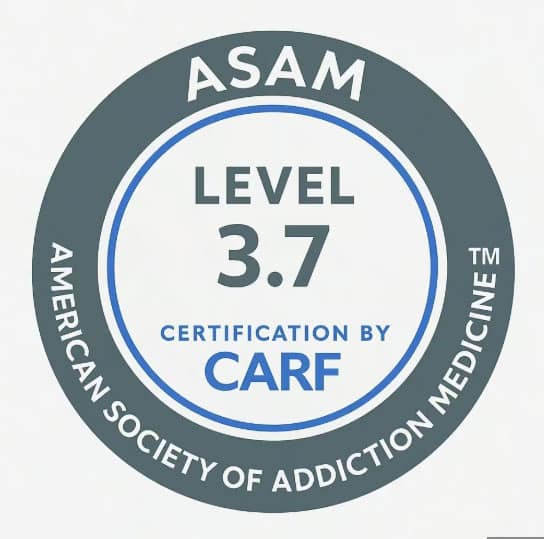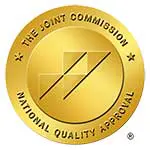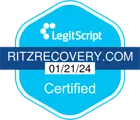Speak to an Admissions Specialist Today!
Call us at (888)-680-1356 or fill out a confidential form.
Drug detox is the process of clearing drugs from the body, a crucial first step in addiction treatment for those struggling with drug abuse. This process helps manage withdrawal symptoms and prepares individuals for further recovery. Understanding drug detox can guide you towards a safer and more effective journey to sobriety.
Key Takeaways
Medical supervision is essential during drug detox to manage withdrawal symptoms and prevent complications.
Hydration, nutrition, and a robust support system are critical for a successful detox experience.
Post-detox treatment, including behavioral therapies and maintenance medications, is necessary to sustain long-term sobriety.
Effective Strategies for Safe and Successful Drug Detox

A successful drug detox relies on multiple strategies aimed at safety and effectiveness. Drug and alcohol detox is the first step in recovering from addiction. Medical supervision is vital as withdrawal symptoms can be severe. Medical professionals can monitor the process, prevent complications, and manage symptoms safely.
Hydration and nutrition are essential during detox. Providing your body with necessary nutrients helps manage withdrawal symptoms and supports overall health. Drinking water and eating balanced meals significantly improve how you feel during detox.
A strong support system is crucial during detox. The emotional challenges can be mitigated by leaning on friends, family, or support groups. Clear intentions and realistic expectations help maintain motivation and focus on recovery goals.
Setting the Stage for Drug Detox
If you’re considering detox, numerous resources can guide you. A substance abuse self-assessment is a valuable, free tool for evaluating your situation and deciding if detox is the right step, offering clarity and direction at the start of your journey.
Both free and paid detox programs are available, with costs influenced by the level of care, detox center, and payment method. Organizations like Ritz Recovery offer tailored support for teens, young adults, adults, couples looking to rehab together, and families.
Understanding Drug Detoxification

Drug detoxification involves clearing substances from the body while managing withdrawal symptoms, a critical initial step in substance abuse treatment. Drug and alcohol detox typically lasts from a few days to a week, with health risks such as seizures and severe dehydration associated with withdrawal. Medically supervised detox is often recommended to ensure safety and provide proper care.
Hydration and nutrition significantly support the body during detox. Adequate rest, hydration, and nutrition help manage physical withdrawal symptoms and support overall health. Understanding potential withdrawal symptoms can reduce anxiety and prepare individuals for detox.
Clear intentions and realistic expectations maintain motivation during detox. A robust support system can ease emotional challenges, offering necessary encouragement and stability.
Preparing for Detox
Preparing for detox is a crucial step in the recovery process. It involves evaluating the need for detox, understanding the detox process, and preparing oneself for the physical and emotional challenges that lie ahead.
Evaluating the Need for Detox
Evaluating the need for detox involves assessing the severity of one’s addiction and determining whether detox is necessary. This can be done by consulting with a medical professional or a substance abuse treatment center. They will assess the individual’s physical and psychological symptoms, medical history, and substance use patterns to determine the best course of treatment.
Some common signs that indicate the need for detox include:
Severe withdrawal symptoms when attempting to stop or reduce substance use
Increased tolerance to the substance, requiring larger doses to achieve the same effect
Loss of control over substance use, despite negative consequences
Neglect of important responsibilities and relationships due to substance use
Continued use of the substance despite physical or mental health problems
The Drug Detox Process

The drug detox process includes several stages designed for safety and effectiveness: initial assessment, stabilization, and transition to treatment. Each phase is crucial for managing withdrawal symptoms, ensuring medical stability, and preparing for ongoing addiction treatment. Comprehensive treatment strategies that address both detox and the broader implications of drug abuse, including psychological, social, and legal issues, are essential for long-term recovery.
Medically supervised detox is essential for monitoring withdrawal symptoms and using medications to ease discomfort. Professional detox programs provide necessary medications and a safe, controlled environment for recovery.
Initial Assessment
In the initial assessment phase, healthcare professionals evaluate physical and mental health to tailor the detox approach. This comprehensive evaluation includes reviewing drug, medical, and psychiatric histories, and often involves blood tests to measure drug levels.
Quitting drugs cold turkey can be dangerous. Healthcare providers discuss these risks and recommend consulting a physician before making abrupt changes.
Stabilization Phase
The stabilization phase prevents harm and ensures medical stability, preparing the patient for ongoing addiction treatment. Medications alleviate withdrawal symptoms, ensuring comfort and reducing the risk of life-threatening complications.
Anticonvulsants, for example, help in alcohol detoxification by preventing seizures and reducing cravings. These medications aim to decrease complications and ensure a safe, comfortable detox experience.
Transition to Treatment
The final step of detox is preparing for a treatment program, an essential part of recovery. Doctors familiarize patients with the treatment process to support their transition, ensuring readiness for the next phase. Inpatient rehab offers the best chances of success, providing a structured environment for ongoing treatment.
This phase is crucial for long-term recovery. Understanding the treatment process and what to expect helps patients transition smoothly from detox to comprehensive addiction treatment improvement protocol.
Common Medications Used in Drug Detox
Medications ease withdrawal symptoms and support recovery during drug detox. Commonly used medications include methadone, buprenorphine, and benzodiazepines, essential during the stabilization phase to manage symptoms and ensure comfort.
Medical supervision is crucial for managing these medications and monitoring withdrawal symptoms. Medication types vary based on the substance, with specific ones tailored to different withdrawal symptoms.
Methadone for Opioid Withdrawal
Methadone is widely used for opioid detox and maintenance treatment. It manages opioid withdrawal and cravings, decreasing both effectively. Methadone is considered safe and effective for managing opioid dependence.
Buprenorphine for Opioid Detox
Buprenorphine is another medication for opioid detox that reduces withdrawal symptoms and cravings, functioning as a partial opioid agonist.
Subutex and Suboxone are common forms, with Suboxone designed to prevent misuse.
Benzodiazepines for Alcohol and Sedative Withdrawal
Benzodiazepines manage withdrawal symptoms from alcohol and sedative and alcohol withdrawal. They are a first-line treatment, significantly reducing the risk of seizures and managing anxiety during detox.
Side Effects and Risks of Drug Detox

Drug detox has its own side effects and risks. Medical supervision is vital to manage potentially life-threatening withdrawal symptoms and prevent severe complications. Unmanaged withdrawal can lead to life-threatening symptoms, necessitating professional oversight.
Common withdrawal symptoms during detox include:
irregular heartbeat
changes in blood pressure
intense anxiety
severe lethargy
Medications like methadone and buprenorphine are used in medically assisted opioid detox programs to alleviate discomfort and prevent severe complications.
Physical Withdrawal Symptoms
Physical withdrawal symptoms and opioid withdrawal symptoms are a crucial part of drug detox. Common signs include shaking, nausea, headaches, and flu-like symptoms. Severity and type depend on individual differences and the specific substance.
Unmanaged withdrawal can cause intensely uncomfortable symptoms and potentially life-threatening conditions, stressing the need for medical supervision.
Psychological Withdrawal Symptoms
Psychological withdrawal symptoms are equally important to address during alcohol detox. Severe symptoms from substances like alcohol or drugs can include delirium, significantly affecting mental health. Anxiety, depression, and mood swings are common during detox.
Managing psychological withdrawal symptoms is crucial for a safe detox and preparation for ongoing treatment. Addressing both physical and psychological symptoms ensures a comprehensive recovery approach.
Can You Detox at Home?
Detoxing at home is risky and generally not recommended. It can lead to severe withdrawal symptoms that are difficult to manage without medical support, and increases the risk of relapse, potentially resulting in a fatal overdose.
Many people underestimate detox complexity, not realizing it requires professional guidance. At-home detox kits can be ineffective, unsafe, and lead to complications without medical care. Professional detox services are recommended for safety and support during withdrawal.
Post-Detox Treatment and Recovery
Continued treatment post-detox is crucial for maintaining sobriety, coping with recovery challenges, and preventing relapse. Follow-up care after rapid detox is essential, as many patients may relapse without ongoing treatment.
A strong support network, identifying and avoiding triggers, and regular physical activity are essential for post-detox recovery. Open communication and setting boundaries with loved ones strengthen relationships during recovery.
Maintenance Medications
Maintenance medications like acamprosate and naltrexone reduce the likelihood of relapse following detox. Naltrexone reduces cravings and prevents relapse in alcohol use, while acamprosate promotes long-term abstinence after alcohol abuse disorder treatment.
Behavioral Therapies
Behavioral therapies address the root causes of substance abuse and support long-term recovery. They help individuals understand their behaviors and develop strategies to maintain sobriety by addressing the psychological aspects of addiction.
Finding the Right Detox Center in Los Angeles
Finding the right detox center is crucial for a successful recovery experience. Resources like FindTreatment.gov provide a comprehensive directory of treatment facilities, frequently updated with new information. The Substance Abuse and Mental Health Services Administration (SAMHSA) also offers resources to locate certified drug detox centers.
Consulting a healthcare provider can help identify appropriate detox centers tailored to individual needs. Helplines provide immediate assistance and guidance in finding suitable detox services.
Ritz Recovery, a reputable drug and alcohol addiction rehabilitation center in Los Angeles, offers tailored support for various needs.
Rapid Detox: Pros and Cons
Rapid detox removes substances from the body faster than traditional methods, significantly shortening the detox duration. It allows individuals to rid their bodies of opiates within hours instead of weeks, typically involving an opiate antagonist administered while the patient is under anesthesia.
However, rapid detox comes with significant health risks, including complications from anesthesia, particularly for those with pre-existing medical conditions. Additionally, rapid detox procedures are not covered by insurance and can be quite costly, ranging from $15,000 to $20,000.
Life After Detox: Building a Sober Future

Building a sober future after detox involves addressing the psychological aspects of addiction through counseling, support groups, or inpatient rehab. Setting goals provides structure to the recovery process, helping individuals track progress and realize sobriety takes time and effort.
Creating a support network is crucial for sustaining sobriety. Support from friends, family, and support groups enhances accountability and provides encouragement, essential for maintaining long-term recovery.
Useful External Resources for Drug Detox
To enhance your understanding of drug detox and recovery, consider exploring these valuable external resources:
- National Institute on Drug Abuse (NIDA) – NIDA’s Drug Facts provides comprehensive information on drug use, addiction, and treatment options.
- Substance Abuse and Mental Health Services Administration (SAMHSA) – Visit SAMHSA’s website for resources on finding treatment centers and accessing their national helpline for immediate support.
- American Addiction Centers – Explore American Addiction Centers for information on various addiction treatment programs and facilities across the U.S.
- Mayo Clinic – The Mayo Clinic’s guide on drug addiction offers insights into symptoms, causes, and treatment options.
- FindTreatment.gov – Use FindTreatment.gov to locate certified treatment facilities tailored to your needs.
Choose Ritz Recovery for Your Drug Detox Journey
If you’re ready to take the first step towards recovery, consider Ritz Recovery for your detox and rehabilitation needs. Located in Los Angeles, Ritz Recovery offers a comprehensive and personalized approach to substance abuse treatment. With a team of experienced medical professionals, we provide medically supervised detox, ensuring safety and comfort throughout the process.
Our facilities offer a supportive environment where you can focus on healing and rebuilding your life. Whether you need inpatient rehab or ongoing support, Ritz Recovery is dedicated to helping you achieve long-term sobriety.
Take control of your future today. Contact Ritz Recovery to learn more about our programs and start your journey to a healthier, sober life.
Summary
In summary, drug detoxification is a complex but essential first step in the journey toward recovery from substance abuse. Effective strategies include medical supervision, proper hydration and nutrition, and a strong support system. Understanding the drug detox process, common medications used, and the potential side effects and risks can prepare individuals for this challenging but rewarding journey.
Building a sober future requires ongoing treatment, such as maintenance medications and behavioral therapies, as well as a robust support network. By taking these steps, individuals can navigate the path to recovery and maintain long-term sobriety. Remember, the journey may be tough, but with the right support and resources, a brighter, sober future is within reach.
Frequently Asked Questions
What is the importance of medical supervision during drug detox?
Medical supervision during drug detox is essential for safely managing withdrawal symptoms and preventing complications, ultimately ensuring a more effective detox process.
Can I detox at home safely?
Detoxing at home is not advisable due to the risk of severe withdrawal symptoms and complications; it is best to seek professional medical supervision for safety.
What medications are commonly used during drug detox?
Common medications used during drug detox include methadone, buprenorphine, and benzodiazepines, which aid in managing withdrawal symptoms and facilitate recovery.
What are the risks associated with rapid detox?
Rapid detox poses considerable health risks, including potential complications from anesthesia, and it is often not covered by insurance, leading to high costs.
How can I find a suitable detox center in Los Angeles?
To find a suitable detox center in Los Angeles, utilize resources like FindTreatment.gov and SAMHSA, and consider consulting a healthcare provider for personalized recommendations. Additionally, consider Ritz Recovery, a reputable drug and alcohol addiction rehabilitation center in Los Angeles, known for its comprehensive and personalized approach to substance abuse treatment. This approach ensures you access certified facilities that meet your needs.








